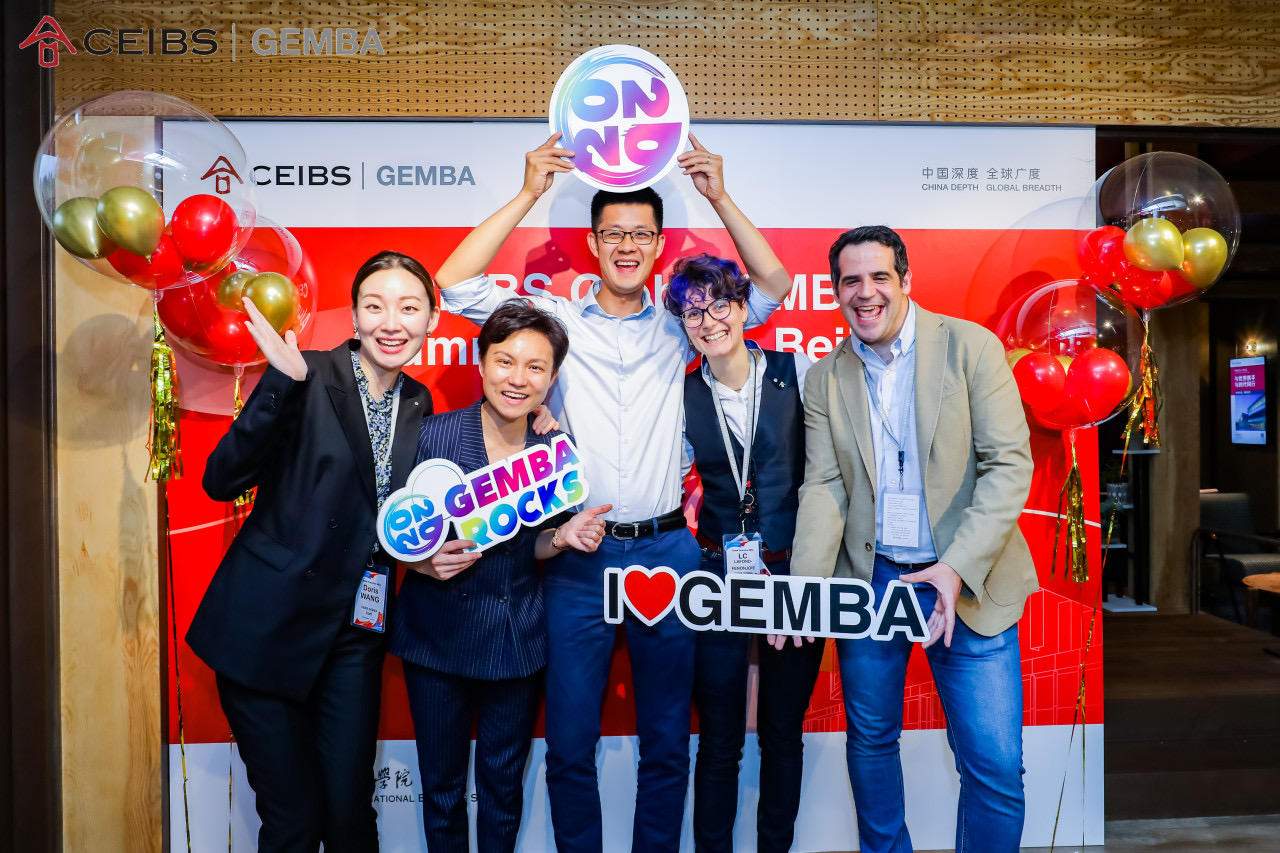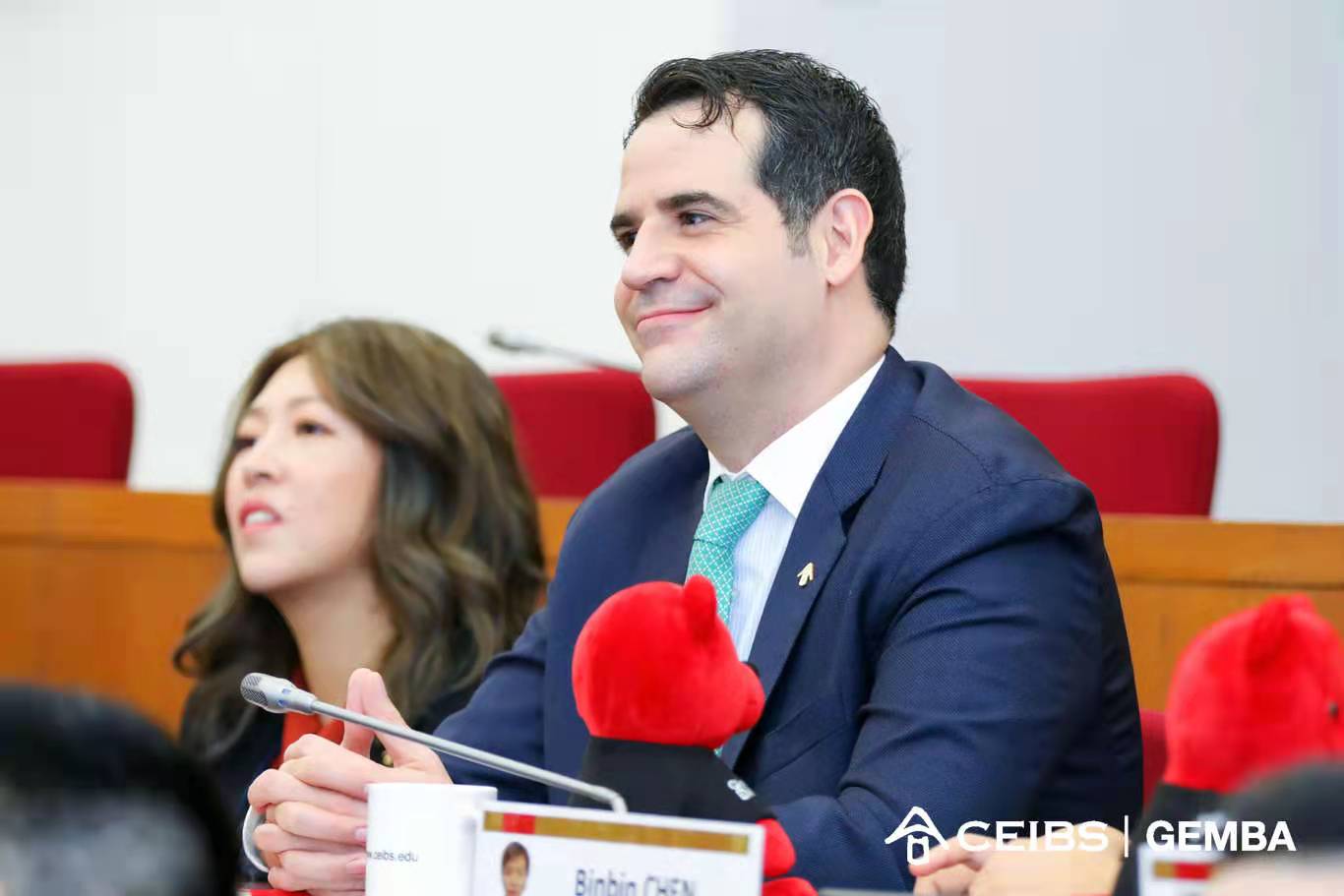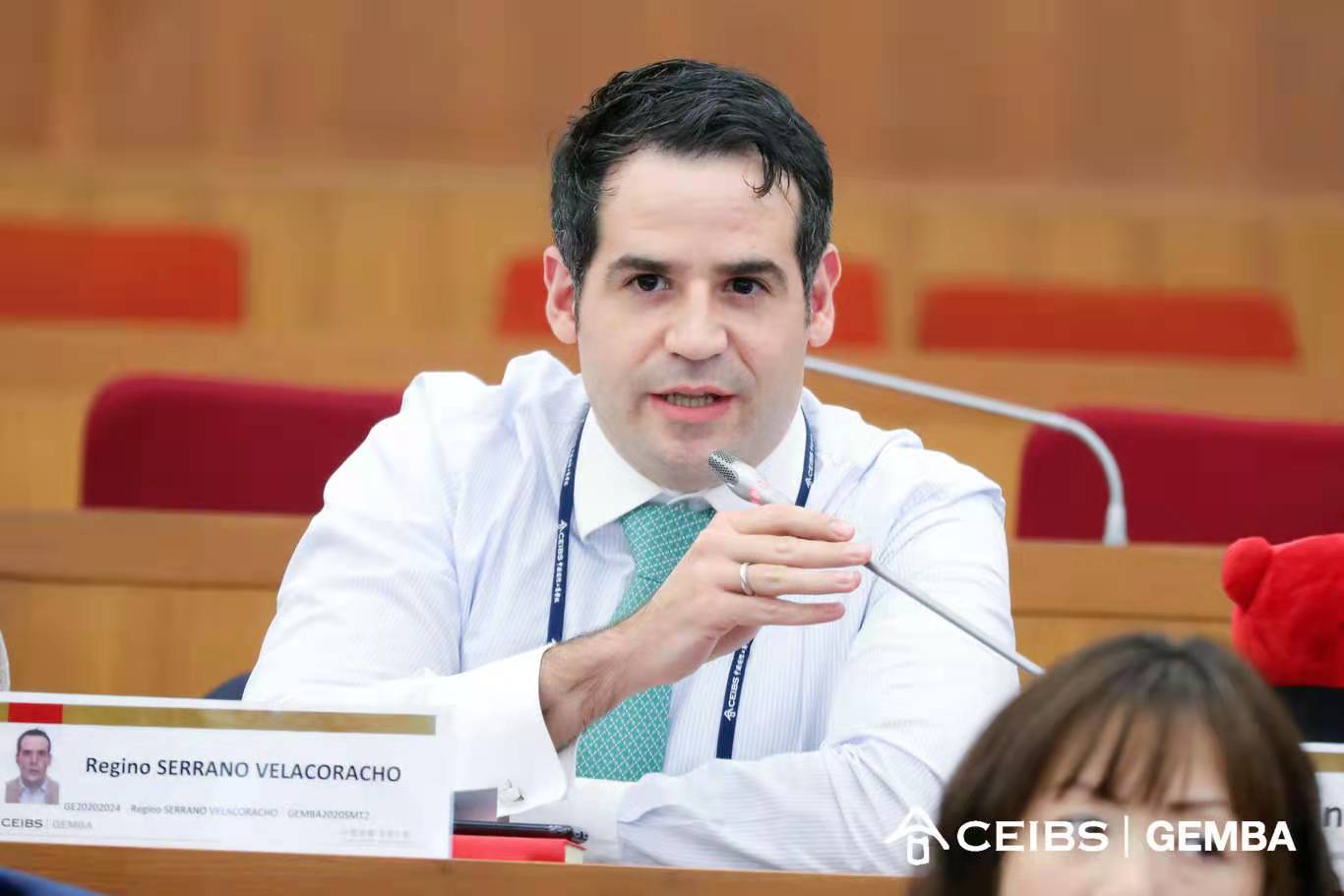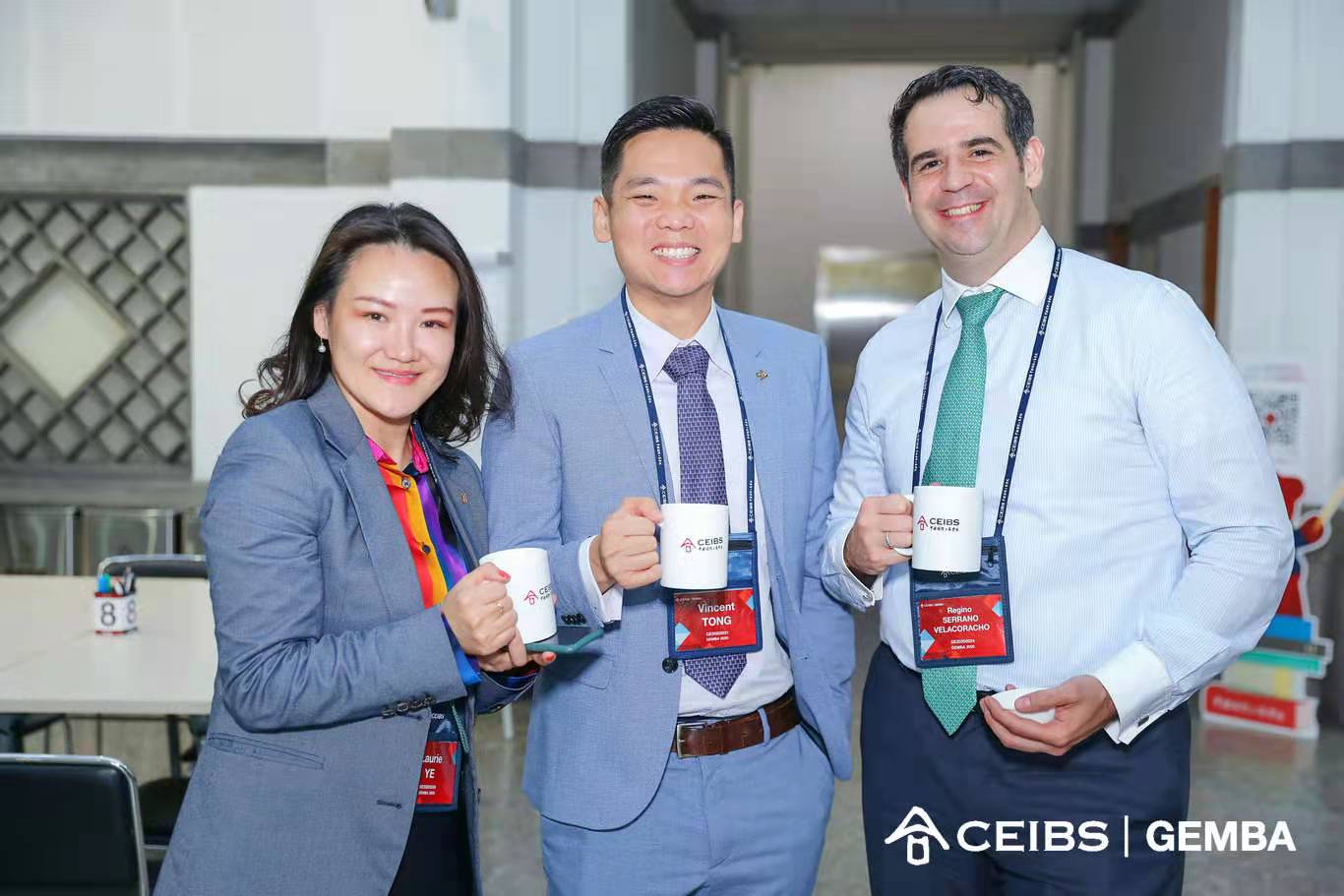Appetite for Collaboration: Global EMBA 2020's Regino Serrano
While the global pandemic has severely curtailed movement around the world, trade in goods has bounced back to be even higher than pre-pandemic levels, with China one of the main drivers. China’s food and beverage market is the largest in the world, with many countries eager to get their own piece of the pie and carve out a share of this enormous market. CEIBS 2020 GEMBA Regino Serrano heads the agri-food department of the Spanish Embassy's Trade Commission in Shanghai, tasked with promoting Spanish food and beverages to the Chinese market.

We caught up with him to discuss his work with the Trade Commission, his experience at CEIBS so far, and the importance of interpersonal connections when bringing companies, and even whole countries, closer together.
Showcasing Spain’s tastiest exports
The Trade Commission’s main mission here in Shanghai is to promote the quality of Spain’s national products as exports to China. Not only does it help forge connections between Spanish exporters and Chinese importers and distributors, the commission also encourages inwards and outwards foreign direct investment (FDI) between China and Spain.
As Head of the agri-food department, Regino is responsible for showing China all the delicious produce Spain can put on its shelves, plates, tables and wine cellars. Since assuming the role, he has been at the forefront of the commission’s drive to increase awareness and market share of Spanish food and beverage products in the Chinese market.
The past two years have been a time of explosive growth too. Spain is by far the number one country of origin for olive oil sold in China. It is also the top exporter of pork products to China. It is among the top four countries of origin for wine in China, competing with the likes of France, Italy and Chile. All the while, Spanish cheeses, beer and confectionary items are steadily gaining prominence in the Chinese market.
With its well-deserved reputation for culinary excellence, you might think that Spain’s produce would practically sell itself. However, China’s F&B market is not only the biggest in the world, it’s also one of the most competitive. Every major exporting nation is eager to catch the eye (and excite the appetite) of Chinese consumers. Regino says that this healthy competition keeps the market fresh, and requires his department to stay on its toes.
“We’re always looking for new ways to showcase the quality, taste and diversity of Spain’s national produce. For us, it’s not just a question of getting the products into Chinese stores and supermarkets, it’s also about building awareness and allowing Chinese consumers to appreciate them to the fullest. We do this through our varied and expanding promotional activities, and by actively training and teaching local providers to present Spanish products most effectively to their customers,” Regino says.

Adding the human touch, to satisfy a very human need
To keep Spanish produce firmly in the minds of both Chinese companies and direct consumers, Regino and his team dish out a generous helping of promotional campaigns and events throughout the year. These range from maintaining pavilions at major global trade fairs like the China International Import Expo (CIIE) to more low-key affairs targeting specific products or market segments. The team’s goal is to be a matchmaker, educator, cheerleader and all-round facilitator for giving China a taste of Spain’s best culinary exports.
Throughout all these activities, Regino emphasises the need to infuse proceedings with plenty of personality.
“Whatever we do, we make it fun. We make it exciting for the people we’re trying to reach. Food should always be something joyous, something you’re excited to experience. That’s what we try to get across in our events and training sessions. For example, a new event we launched in 2021 is Deli Day, promoting Iberian deli products like ham, cold cuts and cheeses. I’m from the La Mancha region, famous for Manchego cheese, so I was happy to push this event! We did a ham carving contest between nine local ham carvers, and it was a lot of fun. The important thing is to bring your passion to the event, and to the plate,” he explains.
Adding dramatic flair through live carving demonstrations and competitions is just one example of the necessity of adding a personal touch in order to differentiate your F&B products in China’s hyper-competitive market. This is a small but integral part of Regino’s wider philosophy regarding the Trade Commission’s mission to bring China and Spain closer together, through the mutual appreciation of culture as well as tangible economic ties. He believes that interpersonal connections are key to the success of any efforts of this nature, and it’s something he has been exploring throughout the first year of his studies at CEIBS.

Love (of food) in a time of COVID
With a career in China that has spanned more than 10 years across various industries, Regino only recently made the move from corporate to public service, during a time of major change for China and the rest of the world. Having joined the Trade Commission in November 2019, Regino had barely settled into his role before COVID-19 struck. He was immediately hurled into the Trade Commission’s efforts to coordinate the transportation and distribution of sanitary products from China to Spain in the early days of the pandemic.
“It was an exhausting time, but a very rewarding one too. I’m proud to be a small part of the work we did. It emphasised what I already learned from my years in corporate organisations – people are always the key. Whether you’re building bridges between companies, countries or markets, you’re making connections between people. They’re the ones who get the bridge built and keep it maintained, especially in an industry like ours. Enjoying food and drink is a universal human experience but it’s also a deeply cultural one. You must be able to connect with people to properly showcase the best of what your country has to offer,” Regino says.
While getting to grips with his role in the agri-food department, Regino also decided that it was finally time to commit to a Global EMBA – a long-standing ambition of his. Starting his studies at CEIBS in 2020 was a decision made partly because of the pandemic, rather than despite it.
“My reasoning was that anyone who wanted to take on studies at this level during a pandemic would be resilient, adaptable, and willing to take risks. Those were the kind of people I wanted to learn with – and learn from! This proved to be the case right from the start of my GEMBA experience. Everybody wanted to share their industry-specific experiences, how they had adapted, what they planned for the future. I learned so much, so quickly,” he explains.
Regarding particular highlights of the programme, Regino pointed towards the initial leadership module and various electives exploring the importance of harnessing innovation in today’s business world. In each case, he cited the transformational effect his studies have had on his ‘soft’ skills, alongside the strengthening of more technical aptitudes and his wider business knowledge.
“The Global EMBA programme has been transformational already. Technical skills in business and management are of course important, but key takeaways for me involve the refinement of my human skills. Sensitivity, empathy, establishing rapport, how to manage people, to get the best from their skillset and personality, while letting them derive the most value and enjoyment from their work. Much of our time, in and between classes, focuses on this. It’s something I bring to my work every day,” he says.

Looking ahead: Building a Stronger Spanish/Chinese Bridge
The near future looks equally exciting for Regino as the recent past. In 2021, his department undertook more promotional activities than in 2020 and even pre-pandemic 2019. Having experimented widely and ambitiously with online wine tastings, webinars and carving exhibitions last year, 2022 looks set to deliver an even more varied platter of promotions.
“There’s a lot of innovation in our industry, specifically here in China. Food tech is such an interesting space; there are plenty of companies in Spain that have great new ideas and are looking to collaborate with Chinese partners. We always want to be the bridge to make that happen. There’s also new trends in sustainability to consider, such as the introduction of animal-free protein to the market. Omnichannel is another key consideration, and the commission is in close contact with some top players in various online sales platforms. This is something I’m learning a lot about at CEIBS too. Many of my classmates work in this space, so there’s a nice synergy between my studies and my daily work,” he concludes.
Never missing an opportunity to let people know how great Spain’s produce is, Regino has also put on several wine tastings at CEIBS, with some carved Iberian ham and cheeses laid on for the perfect pairing. They’ve already proven very popular with his classmates and professors. Fortunately, he has several more queued up, so make sure you look out for them!














